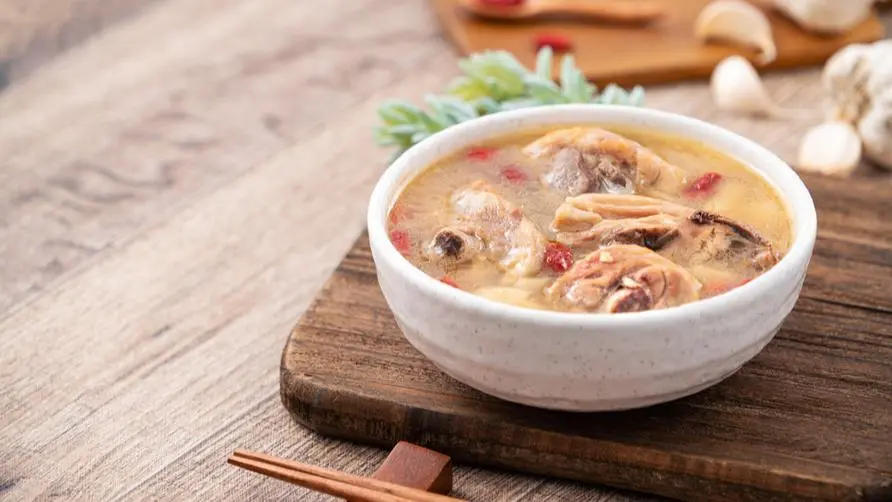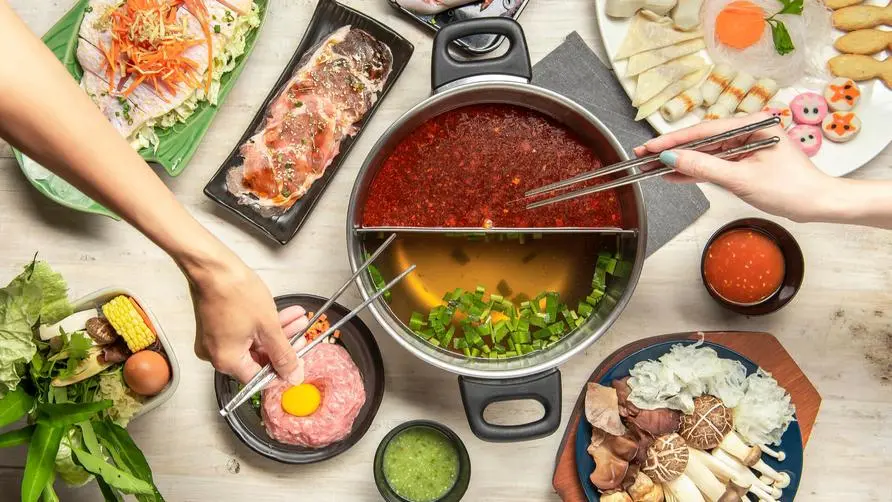Beginning of winter supplementation does not do "4 things", it may only nourish meat but not health! Pay attention to "2 phenomena" as a warning sign of overfilling

The beginning of winter (November 7) has arrived, and many people will invite relatives and friends to feast on mutton stove, sesame oil chicken, ginger duck, etc. to take advantage of the occasion. The Pharmacy Department of Losheng Sanatorium reminds that the above-mentioned medicated dietary supplement soup may look delicious, but it contains unknown risks. Chinese herbal medicines are medicinal foods. We urge patients who are taking Western medicine or Chinese medicine to be careful. After satisfying their appetite, the “interaction” between the medicated soup and the medicine may cause a violent rebound in the body.
Don’t take ginger duck with “these medicines”! 2 The phenomenon may be a warning sign of “overcompensation”
The soul ingredients of Ginger Duck are “Chuanxiong, Scutellaria baicalensis, Angelicae Sinensis, and Lycium barbarum”, paired with the chewy duck meat. It is everyone’s first choice for warming up. Just imagining it makes your mouth water. However, the Pharmacy Department of Losheng Sanatorium stated that people who have been taking drugs for lowering blood pressure, lowering blood sugar, and lowering blood lipids for a long time should pay attention to the interactions between Chinese medicinal materials used in common dietary supplements and many drugs.
For example, the Pharmacy Department of Losheng Sanatorium said that “ginseng” can affect blood pressure. If taken together with antihypertensive drugs, the efficacy of the drug may be weakened and blood pressure control may become unstable; “licorice, astragalus, and ginseng” are suitable for those who are taking immunosuppressive drugs. For patients taking medication, it will reduce the immunosuppressive effect of the drug; another example is “wolfberry” that is often used in cooking. Although it helps lower blood sugar, if diabetic patients take wolfberry and hypoglycemic drugs together for a long time, the effect may be multiplied. Risk of hypoglycemia; in addition, patients taking anticoagulants (warfarin) and those who have had cardiac catheterization surgery may increase bleeding if their dietary supplements contain “dang quai and wolfberry”, which can activate blood circulation and remove blood clots. risk.
The Pharmacy Department of Losheng Sanatorium reminds the public that before taking supplements, you must first consult professionals, such as doctors, Chinese medicine practitioners, pharmacists or nutritionists, to confirm whether there is any interaction between the drugs you are taking and the herbs you want to take. After taking supplements, if you notice symptoms such as broken mouth or constipation, it means that you may have “over-supplied” and you must stop taking supplements. If you feel unwell, you should seek medical advice as soon as possible to find out the problem and avoid failure to take supplements which may endanger your health.
There is a secret to taking supplements at the beginning of winter! Failure to do the “4 things” may lead to failure to maintain good health.
In addition to guarding against the risk of interactions, nutritionist Su Jiahua, director of the Nutrition Office of Losheng Sanatorium, said that patients with chronic diseases or cardiovascular diseases also need to pay attention to consciously controlling calories when taking supplements in winter in order to truly achieve the “health” effect and avoid calorie explosion. Using local and seasonal ingredients and common medicinal foods to replenish energy is the best strategy to fight against COVID-19 and influenza.
Nutritionist Su Jiahua provides the following 4 tips to help people not only eat healthily when taking supplements at the beginning of winter, but also enhance immunity and improve physical fitness:
Make good use of fresh ingredients: Tonic soups during the Beginning of Winter are mostly ginger duck, sesame oil chicken, mutton stew, etc. The taste is too heavy, and it is unhelpful and harmful for people with hot and dry constitutions to eat more. You can use clear soups instead. Use mushrooms, Chinese medicinal materials or sea vegetables to increase the umami flavor; in addition, you can stir-fry the chicken, pork or mutton to be added in a dry pot to remove part of the aroma and fat, and then cook it. In addition to making the soup rich and delicious, you can also add it to the soup. Reduce sodium in soups.
Use seasonal ingredients: Taiwan is rich in agricultural specialties. In winter, yam, sweet potato, lotus root, etc. are the most popular delicacies. However, diabetic patients and those with weight control need to calculate their sugar content and adjust it by replacing staple food (starch).
Choose a variety of proteins: The westernization of diet has made modern people eat outside and are accustomed to high-fat foods. Using high-quality protein ingredients as a source of supplements can not only nourish blood and Qi, but also reduce the proportion of cholesterol and fat sources. Replenish nutrients that are too little in your usual food intake.
Change the original food: Various types of hot pot and soup are common after winter. The fish paste, hot pot ingredients and vegetarian processed products added to them will use oil and starch during the production process to increase the solid volume and flavor. Therefore, attention should be paid to the heat generated by these processes. A normal portion of shabu-shabu hot pot ingredients may contain more than 300 calories, and you have to walk briskly for an hour to consume it. If you add in other ingredients and soup base in the soup, eating one pot is equivalent to the daily caloric intake of an adult (1500-1800 calories Card). It is recommended to reduce the amount of hot pot ingredients by half and replace them with raw meat slices, seasonal vegetables and other ingredients.
Nutritionist Su Jiahua reminds that the “Purine” in most tonic soups will be released during the cooking process, so patients with hyperuricemia (gout) should choose carefully; in addition, patients with high blood pressure should also drink less soup and avoid excessive intake. Too much sodium affects blood pressure control. It is recommended that people who want to take supplements first consult a doctor, Chinese medicine practitioner or nutritionist to choose the method of supplementation that best suits them.
Further reading:





